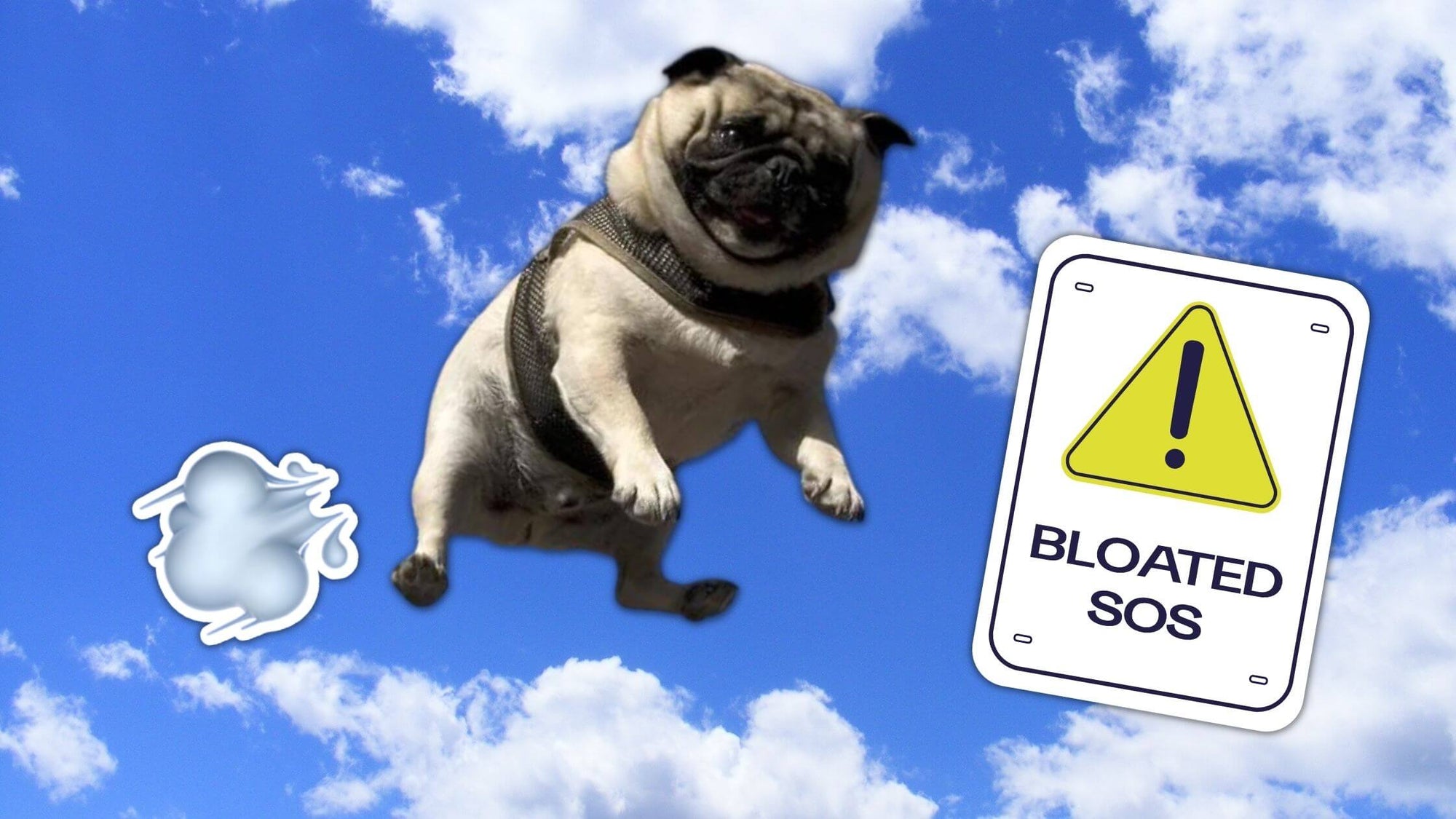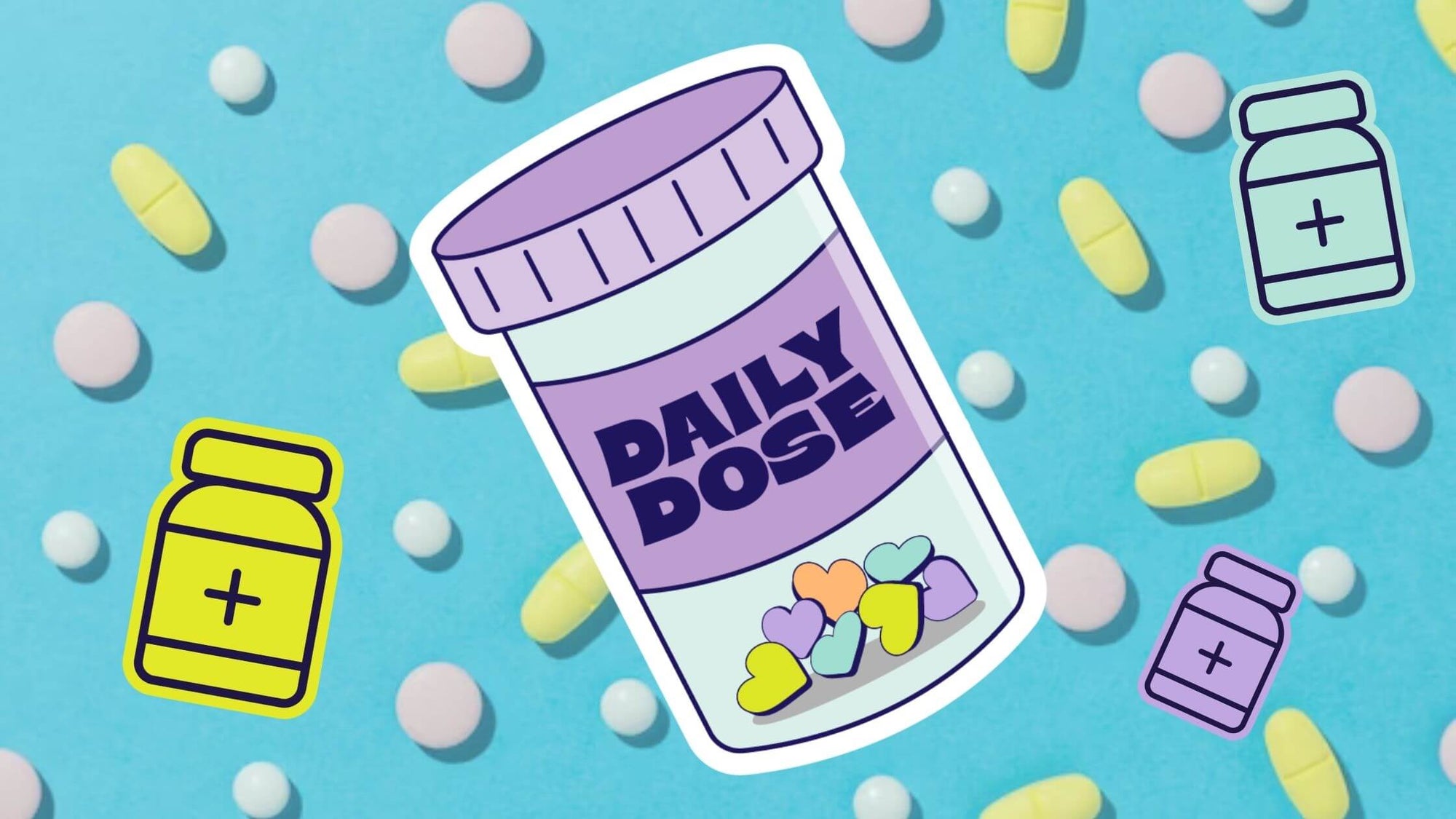Those with a diagnosis of irritable bowel syndrome (IBS) will be no strangers to bloating, excess gas, and poor gut health. These symptoms are common amongst those with a chronic digestive disorder like IBS, and they present just a small part of the challenge of managing such conditions.
IBS is characterised by a range of challenging symptoms, such as abdominal cramps and irregular bowel habits. Depending on the type of IBS, the individual might have chronic constipation (IBS-C), diarrhoea (IBS-D), or a mixture of both (IBS-M). These symptoms can significantly reduce the person’s quality of life.
If you’re reading this and thinking, ‘yep, that’s me. I have IBS and also have to deal with all of those symptoms’, you’re not alone. Although irritable bowel syndrome doesn’t lead to serious digestive complications, it can be extremely difficult to manage.
One of the most difficult things to manage with IBS is your diet. You might find that certain foods exacerbate your IBS symptoms and make you feel awful. Although everybody’s trigger foods are different, and it’s important to identify your personal triggers, there are certain foods that are more common triggers for those with irritable bowel syndrome than others.
We’re going to look into these common IBS-triggering foods in this article, but first, let’s go through what IBS actually is and its main symptoms. We will finish the article with some top tips for managing those awful IBS symptoms.
What Is IBS?
Irritable bowel syndrome (more commonly known and referred to as IBS) is a functional gastrointestinal or digestive disorder that doesn’t necessarily cause any serious long-term effects on the digestive system but can significantly reduce your quality of life. If you have IBS, you might find that you’re mainly affected by constipation, diarrhoea, or a bit of both, alongside a number of other symptoms.
There are lots of hypothesised causes of IBS, and nobody really knows the exact root of this common digestive issue. However, it’s thought to be due to one or a combination of a few of the following things:
- Changes to the permeability of the gut wall (usually leading to the gut wall becoming more permeable, meaning it lets more things through into the bloodstream than it should)
- Changes in the diversity of the gut microbiome (the microorganisms that live in your gut and perform lots of essential functions)
- Reduced gut motility (meaning food moves more slowly through the gastrointestinal tract, leading to bloating, gas, and abdominal pains)
- Increased gut sensitivity to certain foods or ingredients
- Small intestinal bacterial overgrowth (SIBO)
- Digestive tract infections, such as gastroenteritis
- Compromised immunity (which could be due to long-term infection, illness, or therapeutic treatments)
- Other gastrointestinal issues, such as bowel cancer
What Are the Symptoms of IBS?
IBS affects up to 20% of the population, more women than men. You might find that your symptoms differ slightly from somebody else’s symptoms who has IBS.
Everybody is slightly unique in terms of their physical manifestations and psychological coping mechanisms when it comes to irritable bowel syndrome. The important thing is to acknowledge your symptoms and recognise your key triggers so you can learn to manage your IBS more effectively.
The common symptoms of IBS, which can range from mild to severe and can appear at any stage of your life, include:
- Bloating
- Excess gas in the digestive tract, causing lots of burping and flatulence
- Lower abdominal pains
- Constipation, diarrhoea, or both
- Weight loss or weight gain due to changes in appetite
Some of the lesser common but still notable symptoms of IBS include anaemia, nutrient deficiencies, and severe dehydration. These symptoms are usually found in those with IBS-D, as they can lose lots of nutrients and fluids in their stool.
Whether you tend towards constipation or diarrhoea, or you lie somewhere in the middle of the two, IBS can disrupt your toilet habits to the point where you have to cancel social events or head home from work early to run to the toilet! This might cause embarrassment and inconvenience, and might make planning your personal and professional lives more difficult.
What Foods Make IBS Worse?
Common trigger foods that can make irritable bowel syndrome symptoms worse include the following.
1. Fatty foods
Foods that contain saturated and trans fats like takeaways, deep-fried foods, and fatty cuts of meat, can often be an issue for those with IBS. You might find that you get a lot of abdominal discomfort after consuming these foods.
2. Dairy
Dairy contains lactose, which is a sugar found naturally in milk and milk products. A lot of the time, those with IBS are intolerant to lactose and consuming it can cause bloating, gas, and diarrhoea.
3. Some fruits and vegetables
Certain fruits and vegetables can be problematic if you have irritable bowel syndrome and may exacerbate your symptoms. Common fruit culprits include sugary fruits like apples, pears, and watermelon. Problematic vegetables include green beans, onions, garlic, and cruciferous veggies like broccoli, kale, cabbage, Brussels sprouts, and cauliflower.
4. Beans and legumes
Although beans on the ground are generally healthy foods and contain lots of plant-based fibre, which is known to support digestion, they aren’t always the best choices for those with IBS. Beans, chickpeas, and lentils are high in fibre, and can lead to bloating if you suffer from irritable bowel syndrome.
5. Spicy foods
Generally, it’s recommended that those with IBS avoid spicy foods as much as possible. Foods containing lots of spices can irritate the digestive tract and exacerbate IBS symptoms (most commonly abdominal cramps and diarrhoea).
6. Artificial sweeteners
Some sugar substitutes, such as sorbitol and mannitol, are known to have laxative effects and could cause diarrhoea in those with IBS. It is important to look at food labels if you have IBS so you can avoid unnecessary consumption of triggering sugar substitutes.
Tips to Manage IBS Symptoms
Experiencing any sort of digestive discomfort can be overwhelming. If you have IBS and have suffered from this condition for a while, you may have developed your own coping mechanisms that work perfectly for you. However, if you have no idea how to manage IBS and its symptoms effectively, this section of the article should be helpful.
Below, we have covered some of the best strategies and natural remedies that you can use to manage the symptoms of irritable bowel syndrome and improve your gut health in the long term.
Avoid the common IBS trigger foods
Triggers for IBS include FODMAP foods, which are those that contain fermentable oligosaccharides, disaccharides, monosaccharides, and polyols. FODMAP-containing foods include wheat, rye, dairy, garlic, onions, green beans, apples, apricots, and pears.
The carbohydrates in these foods are known to exacerbate IBS symptoms, so it’s a good idea to reduce your intake of them or avoid them altogether if you’re prone to bloating and abdominal pains.
Instead, choose foods that are known to be IBS friendly, such as oats, rice, quinoa, poultry, fish, tofu, bananas, oranges, lemons, nuts, seeds, and dairy-free or lactose-free alternatives to dairy products.
You could also ask your doctor or a registered dietitian for some lactase supplements. Lactase is the enzyme found naturally in the body that breaks down lactose sugars. Supplementing with this enzyme or other digestive enzymes could improve your digestion and minimise IBS symptoms.
Increase your potassium intake
Potassium is an essential electrolyte for everybody, and it plays an important role in the transmission of nerve impulses, regulation of fluid balance, and contraction of muscle fibres (especially those in the heart). Low potassium (known medically as hypokalaemia) can lead to some serious consequences, including severe muscle cramps and cardiac arrhythmias.
You can increase your potassium intake by eating more avocados, tomatoes, zucchini, potatoes, bananas, apples, and oranges. Doing so will promote better digestive health and maintain a good balance of fluids between your gut and the surrounding tissues. With less water retention, you will feel less bloated and sluggish.
Supplement your diet with probiotics
Probiotics are live bacteria that are found naturally in the gut and aid metabolism, nutrient production and absorption, and regularity. Probiotic bacterial species include Lactobacillus, Bifidobacterium, Enterococcus, and Streptococcus, and in IBS, the numbers of these beneficial bacteria are often skewed, so you end up with fewer than you need for optimal gut health.
This is where taking a probiotic supplement each day can support your gut. The bacteria in these supplements can boost the levels of beneficial bacteria in your gut, improving your digestion and reducing IBS symptoms like bloating, just like digestive enzyme supplements can.
We have a tried and tested probiotic supplement at Wild Dose called A Dose For Bloating. Our customers say that they've seen amazing results within just a week or two of taking our supplement daily. A Dose For Bloating contains two billion probiotics, seven digestive enzymes, and seven plant extracts, which work together to improve the composition of your gut microbiota and eliminate bloating, gas, and abdominal pains.
Aim to lower your stress levels
Your thoughts, feelings, and emotions can have a significant impact on your gut health. So, being chronically stressed and burnt out can cause your pre-existing symptoms like bloating, constipation, or diarrhoea to worsen.
Stress reduction is one of the simplest natural remedies for reducing digestive symptoms and managing IBS more effectively. Of course, this is much easier said than done in the modern day, where life is full of challenges, and workloads are higher than ever.
However, try your best to reduce your stress levels and take more time to relax and focus on the things you enjoy. Doing so could have a profound impact on not just your gut health but your overall well-being.
Wondering how to actually reduce your stress? Try these quick and simple strategies:
- Cut back on your workload
- Make sure to take time to relax before and after work, and avoid taking on extra responsibilities at work that could cause extra stress for you
- Avoid overtraining in the gym and allow your body adequate recovery time in between workouts
- Switch from high-intensity training to lower-intensity forms of exercise like yoga and walking.
- Focus on hobbies and creative tasks that you enjoy in your downtime
- Perform deep breathing exercises when you’re feeling particularly stressed to slow down your heart rate and breathing rate
Prioritise good sleep
Sleep is vital for good health and not getting enough of it (or getting poor-quality sleep) can be detrimental for your gut. If you have IBS, getting adequate sleep is essential for keeping digestive symptoms at bay and maintaining optimal well-being.
Aim to get between seven and nine hours of undisturbed sleep if you can. Obviously, this isn’t always easy to do, especially if you have young children or a job that requires you to work night shifts but try your best! Ask your partner to help out more with the kids, ask your manager if you can switch to day shifts, create a relaxing bedroom environment that promotes restful sleep...
Final Thoughts
Irritable bowel syndrome is a common digestive condition that can lead to a wide range of different symptoms. If you have IBS, you probably feel bloated, gassy, and sluggish quite a lot of the time, and you might find that certain foods make these symptoms worse.
Thankfully, learning about which foods trigger your IBS and avoiding these foods can help to alleviate your symptoms or even get rid of them completely. It might take you some time (and a bit of trial and error) to identify which foods are particularly triggering for your irritable bowel syndrome, but once you’ve identified these foods, it should be quite easy to adjust your diet accordingly.
If you decide to add a probiotic supplement into your daily routine to help manage your IBS symptoms, check out our supplement, A Dose For Bloating. Head to our product page to learn more about its amazing benefits and how it can optimise your gut health and rid your digestive symptoms.








